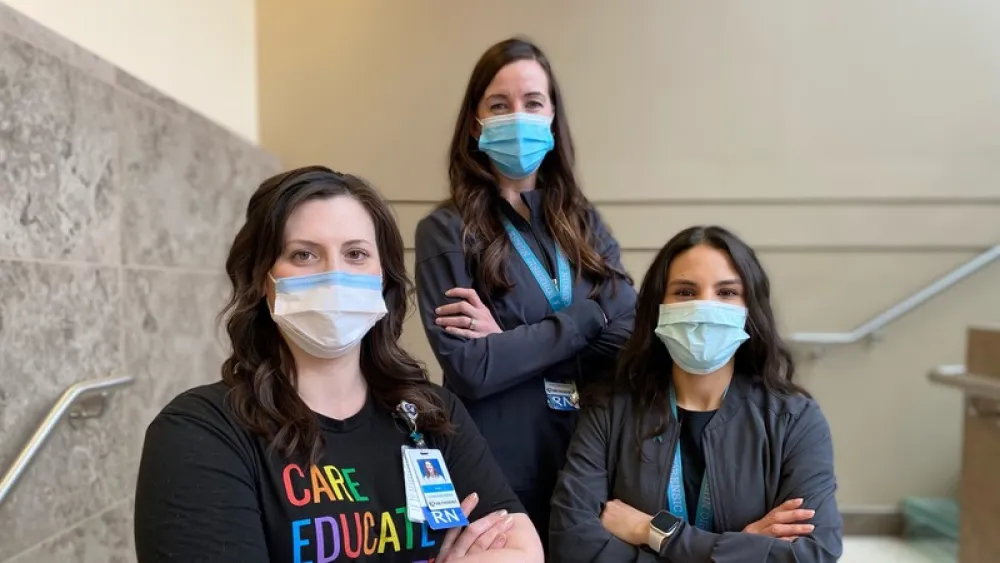Healthy Lifestyle
Sexual Assault: Where To Turn and What To Expect
Published: April 11, 2021

Early in the COVID-19 pandemic, reports of sexual assault decreased nationwide. Experts believe this was likely due to the sudden decline in parties and gatherings, and the closure of bars and similar establishments – where predators often initiate their attacks.
More recently, numbers of sexual assault cases have climbed back to pre-pandemic levels. Last year, members of the Methodist Heidi Wilke SANE/SART (sexual assault nurse examiner/sexual assault response team) survivor program cared for 185 sexual assault survivors – almost a 13% increase from 2020. Forty-two of those survivors were adolescents.
As cases continue to rise, it’s important to know where to go and what to expect should the unthinkable happen to you or someone you love.
What To Expect
Established in 2003, Methodist’s SANE/SART program – which cares for survivors of sexual assault, domestic violence, human trafficking and elder abuse – was the first of its kind in the area.
The program is made up of medical professionals trained to provide physical and emotional support for patients who experience various types of trauma. When a survivor enters the emergency department (ED) at Methodist Hospital or Methodist Women’s Hospital, they can expect comprehensive, compassionate care.
The SANE/SART process looks like this:
- A survivor enters the ED (ideally within five days of their assault) and is met by a triage nurse, who calls a forensic nurse examiner (FNE) to respond promptly – no matter the time or day.
- Once an FNE arrives, they’ll carefully walk the survivor through the services available to them. The survivor always has the right to decline any part of their ED visit. In many cases, they also have the right to anonymous reporting.
- A physical exam is offered to rule out serious injuries, and evidence may be collected. Evidence collection requires state-of-the-art technology to capture detailed images of physical injuries and bruising. Swabs may be performed to identify the presence of bodily fluid and other samples that contain DNA. Medical and preventive treatment may also be provided.
(Survivors are encouraged not to bathe, shower or use the restroom prior to their examination, but evidence collection may still be possible if they’ve done so.) - Before the survivor leaves the hospital, they’re referred to the Methodist Community Health Clinic for follow-up exams. There, they may also receive a counseling referral and be directed to additional resources.
Additional Resources
Methodist is proud to partner with several local organizations dedicated to the success and well-being of sexual assault survivors.
Here are just a few of Methodist’s community partners that offer mental health care, legal aid, safety planning, housing, short-term financial aid and more:
- Women’s Center for Advancement (WCA): Women aren’t the only victims of sexual assault. The WCA also assists men and members of the LGBTQ+ community with their safety needs.
- Heartland Family Service (HFS): The HFS Domestic Violence/Sexual Assault program offers survivors a 24-hour crisis line – (800) 523-3666 – counseling, an emergency shelter, therapy and support groups.
- Project Harmony: Project Harmony is home to a number of trained individuals who provide immediate and age-appropriate support to young survivors.
- Local law enforcement agencies: Area law enforcement agencies – including the Omaha Police Department, Bellevue Police Department, Papillion Police Department and Douglas County Sheriff’s Office – have dedicated squads or detectives that respond to reports of domestic violence and sexual assault. They each also participate in a statewide victim notification system that provides timely information about an offender’s status/location. Additionally, all City of Omaha fire stations serve as temporary safe houses for a survivor’s immediate protection prior to police arrival.
Continued Growth
At Methodist, we believe in adapting to the evolving needs of survivors. That’s why work continues on a Methodist Hospital ED renovation and expansion project, which will include a dedicated space for victims of sexual assault. Expected to open in May 2022, this space is designed to provide enhanced comfort, privacy and safety for survivors.
With ongoing training and plans to expand the SANE/SART program to Methodist Jennie Edmundson Hospital in Council Bluffs, Methodist is determined to make such thorough and compassionate care easily accessible to all survivors in the area.
For more information about Methodist’s commitment to survivors, please visit bestcare.org/sexualassault.
More Resources
- Learn more about Methodist’s commitment to survivors.
- Learn more about Methodist’s SANE/SART program.
- Learn more about domestic violence and why leaving is hard.


